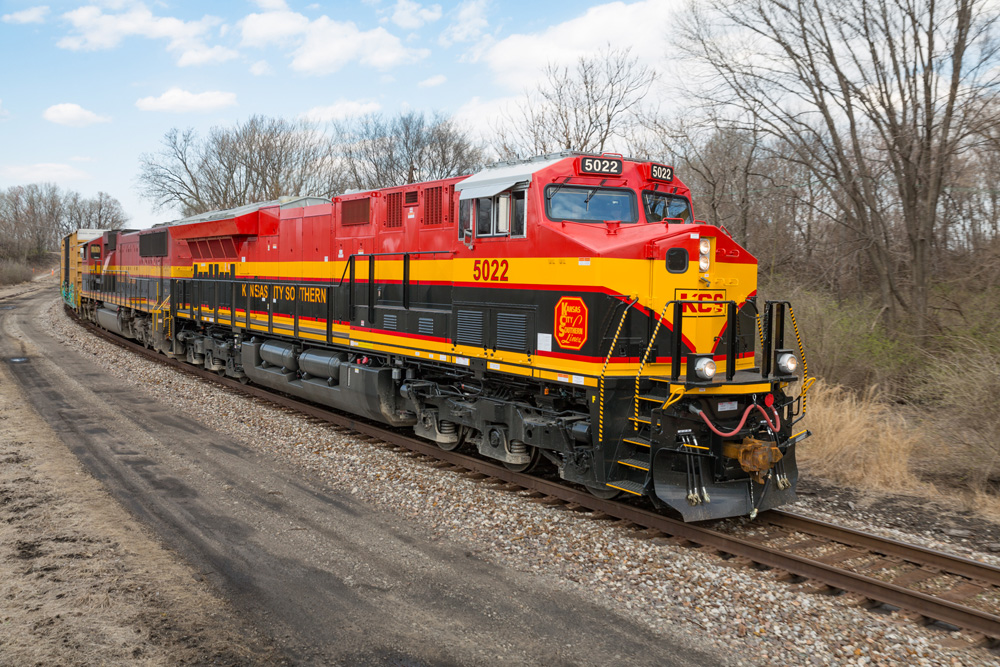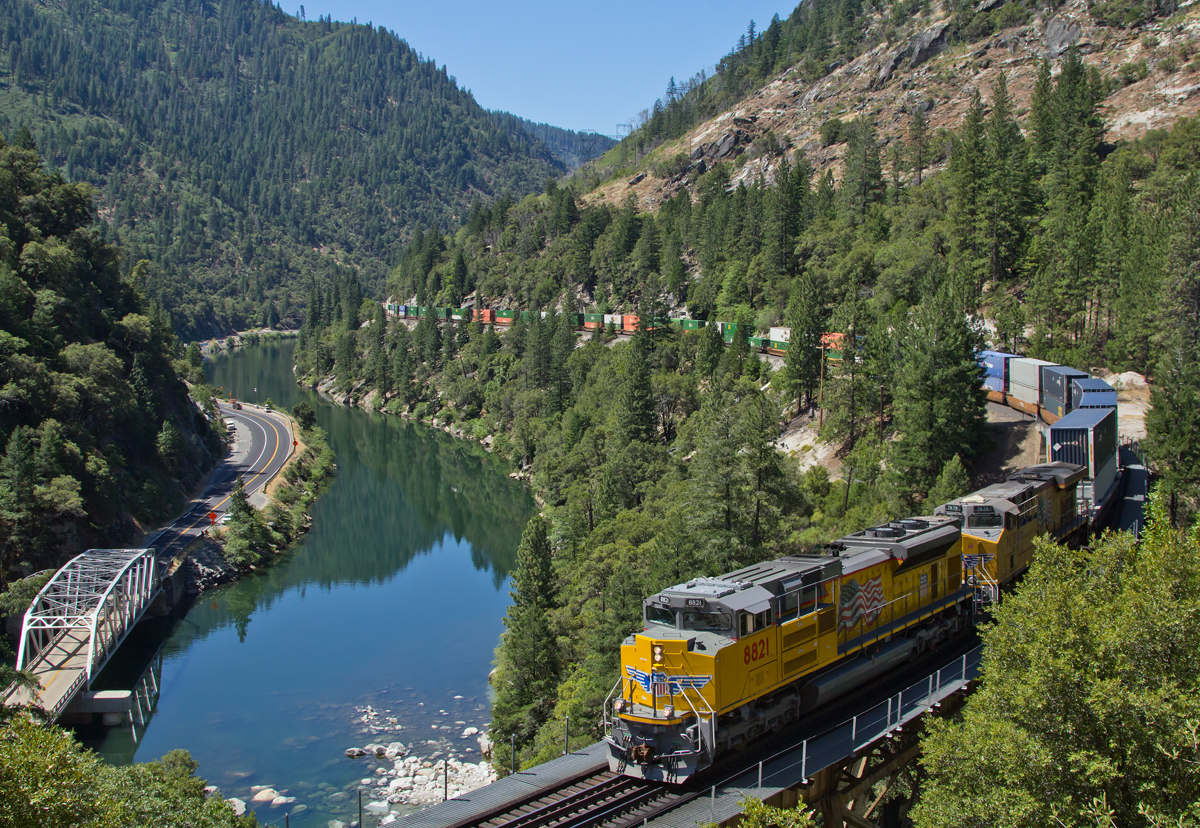Hasa, which makes and distributes water sanitation chemicals such as sodium hypochlorite and hydrochloric acid, last week sought an emergency service order from the Surface Transportation Board after UP said it would reduce switching to the company’s plant in Saugus, Calif., to three days per week, effective Monday.
The reduced service, Hasa claims, would lead to product shortages that ultimately would threaten supplies of safe water to nearly 24 million people in Southern California.
“After over 50 years of providing reliable, consistent service to a longstanding customer, UP has chosen to abruptly cease its required daily scheduled service, without warning or notice, during a time of peak need for Hasa’s chlorine-based products used to provide clean, safe, and clear water to the millions of people in Southern California,” Hasa said in requesting the emergency order. “In addition to devastating Hasa commercially, UP’s reduction in service endangers water safety and public health in Southern California.”
The proposed service reduction is related to Union Pacific’s shift to an operating plan based on the principles of Precision Scheduled Railroading, Hasa says.
The Unified Plan 2020 is supposed to produce service that’s faster and more reliable. And UP officials have promised to communicate service changes to customers well in advance.
“The grim reality of the UP’s new service plan for Hasa is, unfortunately, significantly reduced and more erratic service, curtailed availability of crews and locomotives, increased car dwell, including that of hazardous commodities that are not allowed to be detained on the railroad system under governing safety rules, a dramatic reduction in the movement of railcars in favor of periodic train service, and a complete lack of prior notice, communications, or cooperation over proposed service changes,” Hasa wrote to the board.
Hasa sought the emergency service order after efforts to work with UP through the board’s office of rail customer assistance failed.
The chemical company also accuses UP of trying to relieve itself of its common carrier obligations, including the handling of hazardous materials such as chlorine.
Union Pacific says Hasa’s filings are misleading.
“UP understands why the board took this extraordinary step, given the one-sided record before it,” the railroad’s lawyers wrote in an Aug. 23 regulatory filing. “UP will respond in full to Hasa’s filing on the schedule set forth by the board. That response will show that Hasa has seriously misstated the facts and the law. UP is confident that, once the board has all the true facts and relevant law before it, it will deny the extraordinary relief Hasa sought — and temporarily obtained — from the board.”
Hasa’s filing is available online.















the UP is doing what ever it can to get rid of customers ,all class ones are, as for service, what was already bad service has gotten worse with PSR, in every class one.
@Jim Norton. As things appear, UP (and the other Class 1 roads) have virtual monopolies in their territories, given the fact that shippers physically cannot give their business to another railroad. As monopolies, I agree they should be re-regulated. Perhaps UP could follow the lead of CSX and spin off “last mile” deliveries to pesky customers to short lines created for the purpose, as in New England. How can PSR work anyway when switching the customer has to be done? The Class 1s want to be yard to yard trunk lines. Fine. The greater then the opportunity for new short lines to handle yard to customer traffic
I can’t believe how poor UP’s customer communication was. The whole thing probably could have been averted if they had just sat with the customer, giving them plenty of lead time and explained what they were doing. The the customer would have time to accommodate to the new situation. If the customer refused to accommodate, then it would be on the customer and not on UP.
Of course, railroads have never been known for customer service and I guess they still don’t get it.
@Ian Narita: Not only is it the Santa Clarita basin, just north of the LA Metro, but there are other online customers on this line. It’s not like Hasa is off on some 12 mile industrial lead in the middle of the desert.
Hasa has their own fenced in siding and it appears they load 5 tanks cars at a time.
UP has a service siding supporting Hasa which appears big enough to hold 15-20 tank cars without blocking a side street.
So I reckon, UP is saying Hasa needs to buy their own engine and pull in and out their tank cars. UP will drop off and pick up the 15-20 cars on the service siding 3 days a week, but Hasa has to manage it themselves.
The Google maps satellite view of the Hasa plant shows 5 white tank cars plus 2 black ones and enough space between the black and white ones to hold at least 2 more cars, all inside the gate.
The top officers at UP should be forced to re-read (assuming they have even read it once) Maury Klein’s excellent third book, “Union Pacific: The reconfiguration”. Customer service above all was the operating philosophy throughout. PSR is a joke, existing only to satisfy the Wall Street vultures.
What is interesting is UP appears to have calculated service based on year to date shipments. IE January 1 to July. The problem is that the most active months for this customer is June to September.
Did anyone also look at this plant being in one of the more densely packed urban areas of the country.
This is exactly why carloads are down. The Class Ones are following Amtrak’s lead to downsize their way to Shangi La. Its time to re-regulate the industry.
in reply to John Rice
And rail carriers wonder just why shippers switch to truck.
Having read Hasa’s complaint, basically UP wants to drop off more cars 3 days a week, instead of less cars 5 days a week. Hasa doesn’t have track storage for the extra cars. UP also told them to switch the cars themselves, of course Hasa has no capacity to do so.
For Hasa the issue is the shelf life of the hypochlorite. The sooner it gets from the plant to the insertion the more effective it is and therefore, less is needed iteratively. But if the cars have to sit for extra 2 days the effectiveness of the hypochlorite declines. Also Hasa is not equipped to load 3 days worth of cars in a single setting. They would have to construct more storage tanks, which again diminishes the effectiveness of the product.
Hasa also complains about the math UP used to calculate the 3 day service. Basically UP did a straight average across the service year without any consideration for some of the service ebbs and flows that occur when demand is largest.
What I find completely intolerable by UP is Hasa found out because the long time UP switching engineer assigned to Hasa movements warned (the “rumor”) them that a service cut was coming. And UP didn’t respond to their calls. That particular engineer was suddenly reassigned and rookies unfamiliar with Hasa operations were put in his place.
Hasa had to escalate through a local STB service desk. And even after talking on the phone, UP told them “tough beans”. Again completely intolerable.
What ever “lies or misrepresentations” UP shares with the STB as part of the discovery that they accuse Hasa of foisting on them, (and I would like to hear them!) UP insolent attitude about a customer is extremely revolting.
If in fact Hasa is abusing UP capabilities by forcing them to yard their product without any charges, then I hope UP is specific about what those abuses really are.
But Hasa lawyers really hit the head when they called out UP’s PSR calculation as mathematically inadequate using only a single factor (number of cars passed in a year). Clearly someone doesn’t know how to use Excel perhaps?
If UP had better data than what Hasa said they have, then get it out there for all to see to justify yourselves.
As it stands today, this make UP look like the big jerkweed. I can’t wait to see the lawyer speak on Hasa now.
Hasa apparently doesn’t know what their own request to the UP would entail, and since they requested the change themselves and now that the STB has ordered the UP to maintain status quo, logically the UP should revert to switching in what ever tank cars are convenient to them and not the order-in service as Hasa requested, because that is not the status quo service that the STB ordered UP to maintain. Simple solution, return to the previous spot on arrival service until Hasa realizes their mistake.
Braden; not service “as needed”. The change noted allows Hasa to specify exactly which cars UP should bring in on each switch. This is “order in” or “closed gate” depending on the local terminology in use.
“Open gate” or “spot on arrival” would have allowed UP to deliver pretty much whatever was easiest for them to grab whether Hasa needed it or not.
Sounds like Hasa doesn’t understand the change in service.. Somebody correct me if I’m wrong, but sounds like Hasa and UP agreed on a as needed basis as opposed to scheduled. Hence the change in service.
Pesky customers! Don’t they know ‘we’ are trying to run a Rail Road here?